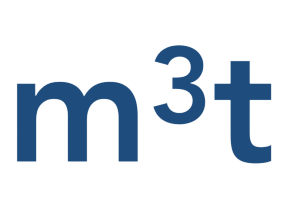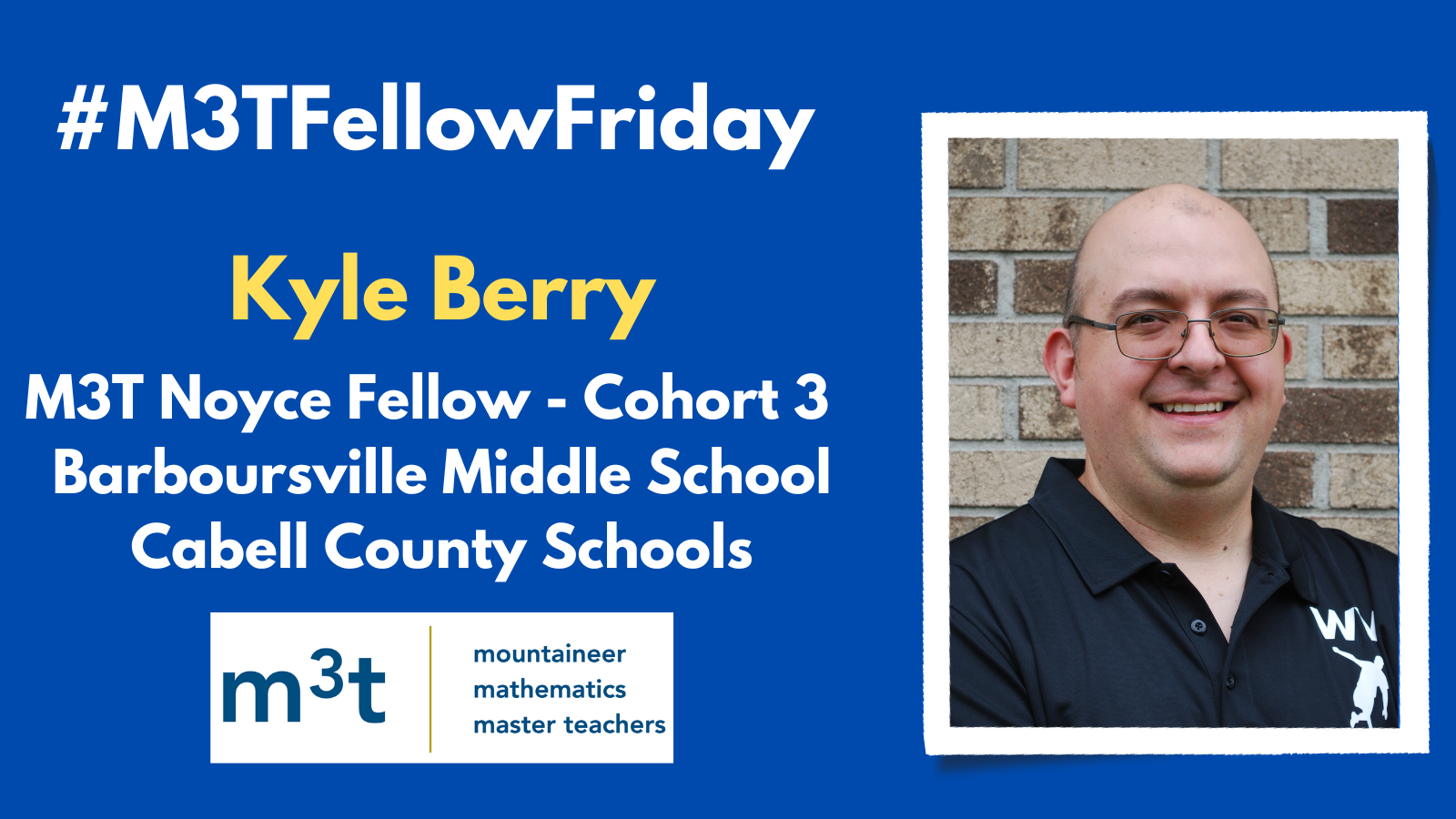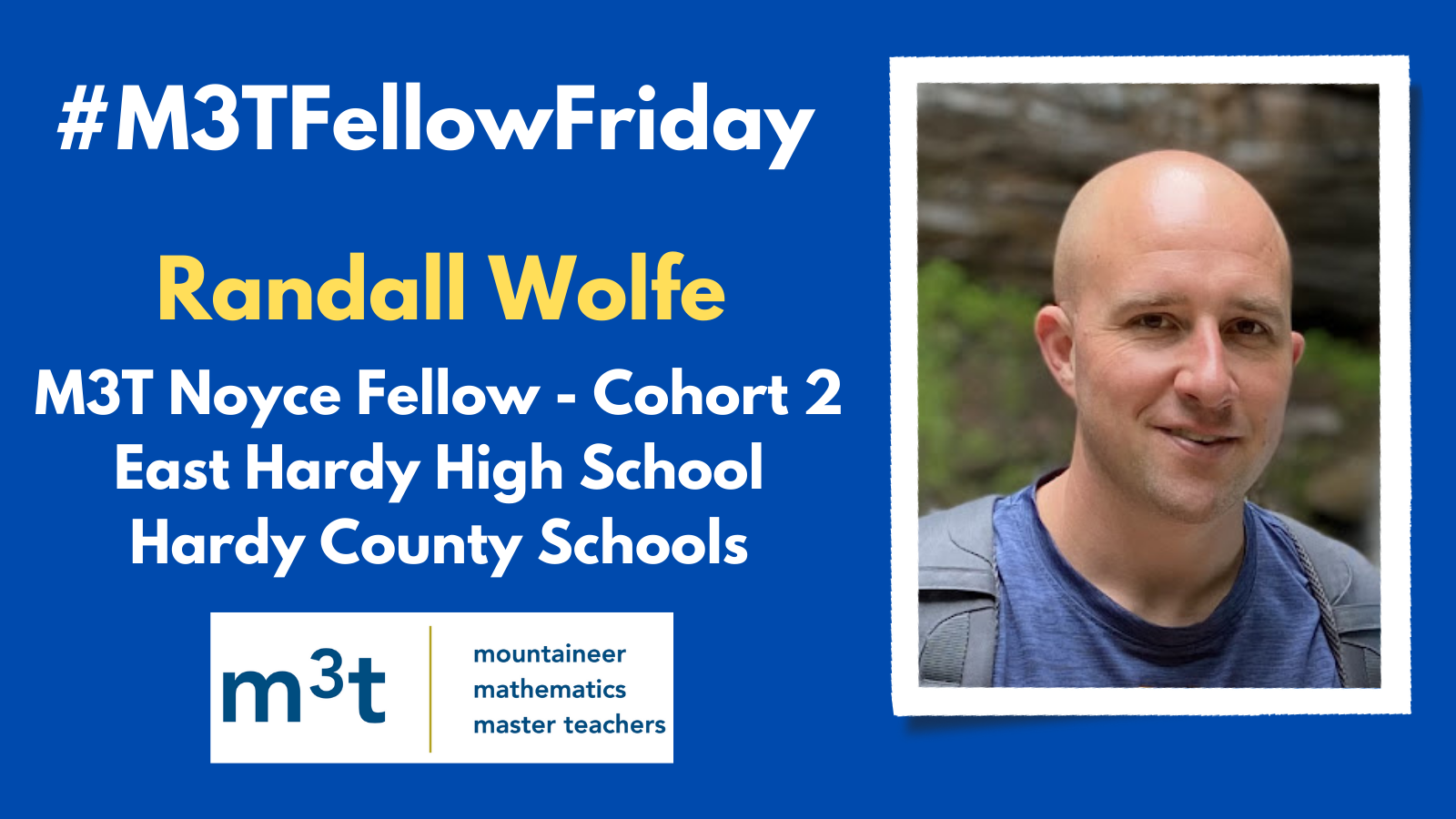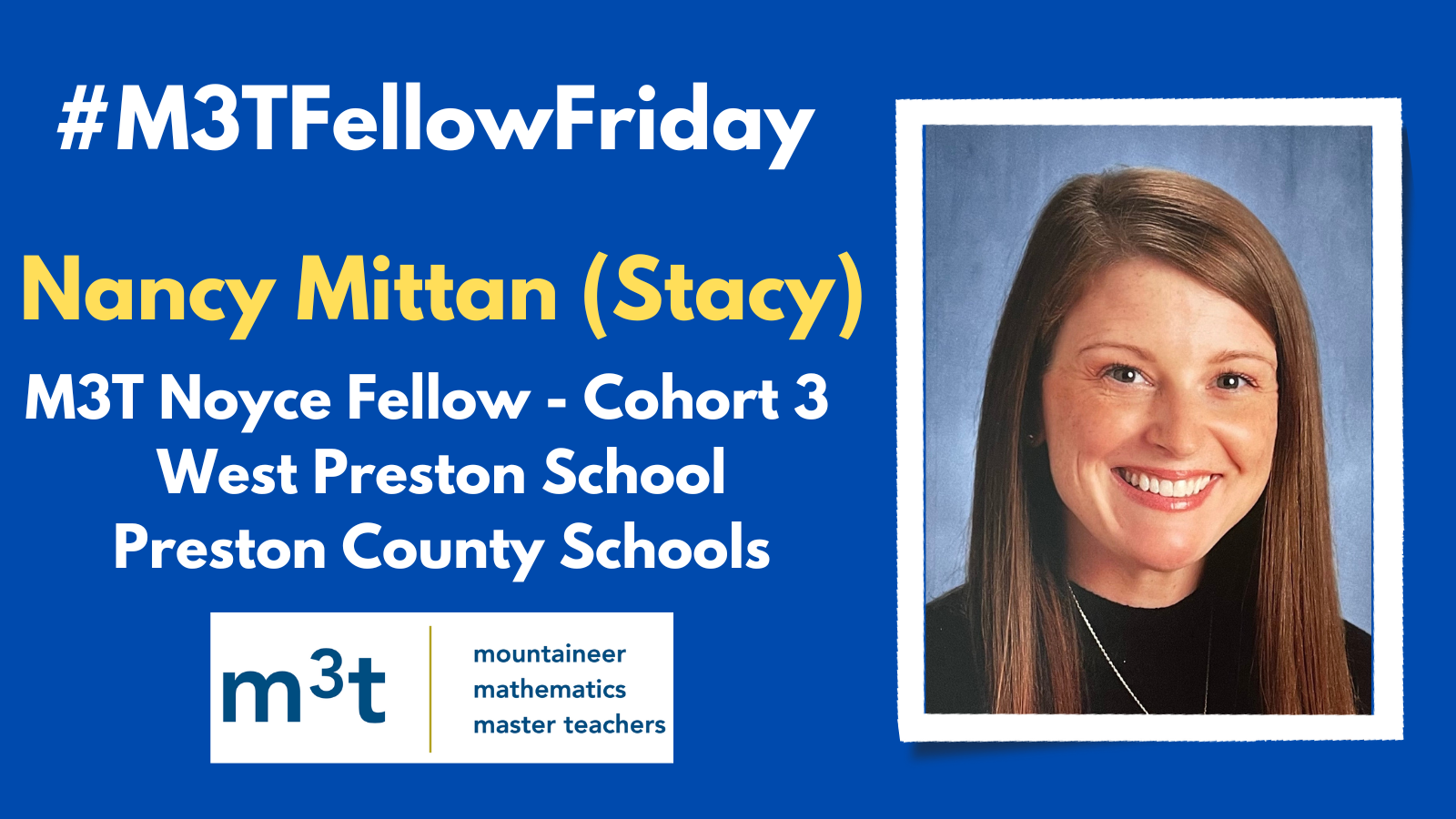Each Friday this Fall, we will introduce one of our new Cohort 3 M3T Fellows. This week, let’s meet Kyle Berry from Barboursville Middle School!
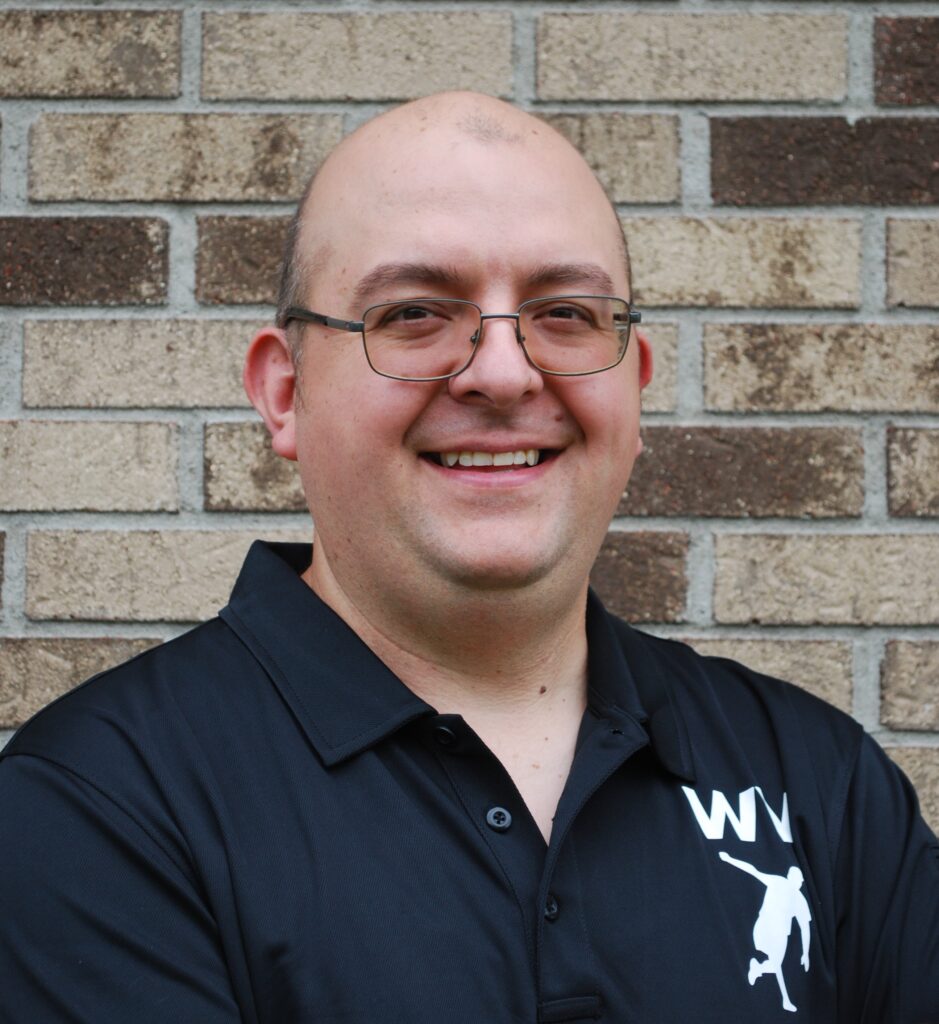
Kyle Berry
M3T Noyce Fellow – Cohort 3
Middle School Mathematics Teacher
Barboursville Middle School
Cabell County Schools
Twitter: @bvilleberry
Number of years teaching: 20
Other roles & positions: Chair, BMS Data & Action Research Committee
Professional awards, distinctions, and points of pride: Kappa Delta Pi (2002), Phi Kappa Phi (2012), Golden Key International (2012), Adjunct Instructor of Curriculum & Instruction at Marshall University’s College of Education from 2010-2019.
Interesting personal facts:
I have been coding since I was about 7 years old, starting on a Radio Shack TRS-80. Back then the language was BASIC but now I enjoy writing in Python and JavaScript.
My daughter and I are huge sci-fi nerds and go to every Comic-Con we can. She loves to cosplay, but I haven’t found the gumption to dress up as anyone…yet. She and I spend our free time immersed in sci-fi shows, movies, and books.
I’ve been a disc golfer for nearly 25 years. I served as a tournament director in the 2018 PDGA Women’s Global Event. I have been able to use my programming background to create a new type of online “virtual” disc golf league for my area.
Why are you excited to be part of the M3T project?
What I’ve found in the M3T project is a group of people like me who see themselves as change agents in their school, actively seeking new and better ways to help students learn.
Why do you teach mathematics?
A firm foundation in mathematics gives us the means not only to cope with the complexities of life and work, but to harness it productively. Planting the next generation’s feet on that foundation is one of the greatest contributions I can make to our future.
What are you focused on improving about mathematics teaching?
I’m convinced getting information into students’ brains is a lot easier than we assume. It doesn’t seem like the problem is with students getting it, but with getting it back out. For that reason, I’m very interested in the concept of outformation, which is to say how we retrieve (or fail to retrieve) the information later when it is needed. That raises some questions:
- Is it a problem of how the information is acquired?
- Is it a problem of how the information is stored/organized?
- Which teaching and study strategies are effective at producing outformation?
- What is each stakeholder’s role in students changing information to outformation?
Final thoughts:
The task of improving education in WV lies before us like a great puzzle on a table. It seems that all the pieces are there, and we’re left with a simple task – assemble the pieces properly. Along the way I think we will find pieces that are missing or misshapen, and even if we cobble something together it will not give us the complete picture. That is not the point, though. We must keep at it in the hope that we’ll find the missing pieces along the way and trust that the bent pieces will eventually take their proper shape. I’m confident that in the years to come M3T is going to make a lot of progress on “the puzzle”.
Spotlight Tweet:
Check in each week on #M3TFellowFriday throughout the school year to meet another M3T Fellow. You can find a listing of all of the M3T Fellows and stay up-to-date with the work of the M3T network at our website, https://m3twv.org. You can also stay up-to-date with all of the activity of our network by following us on Twitter, @m3t_wv, and on Facebook, https://www.facebook.com/m3twv.
